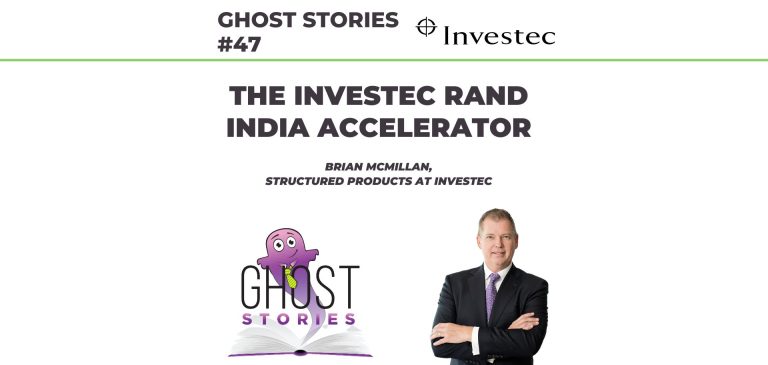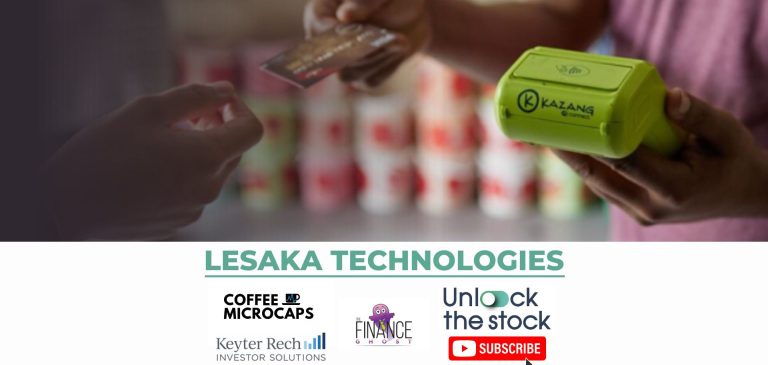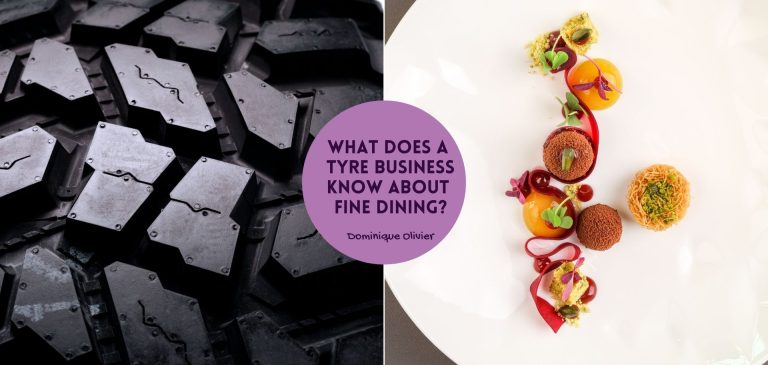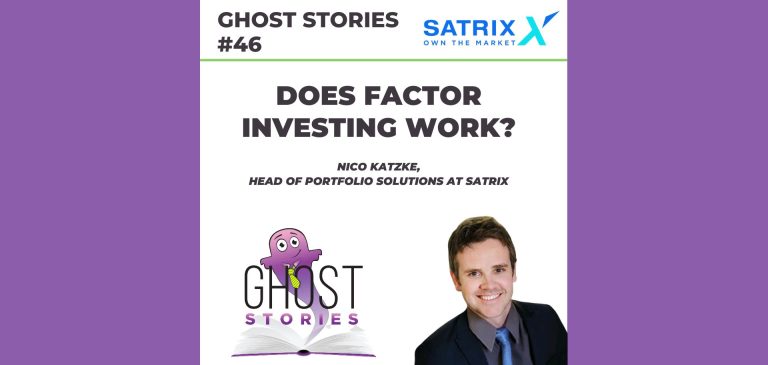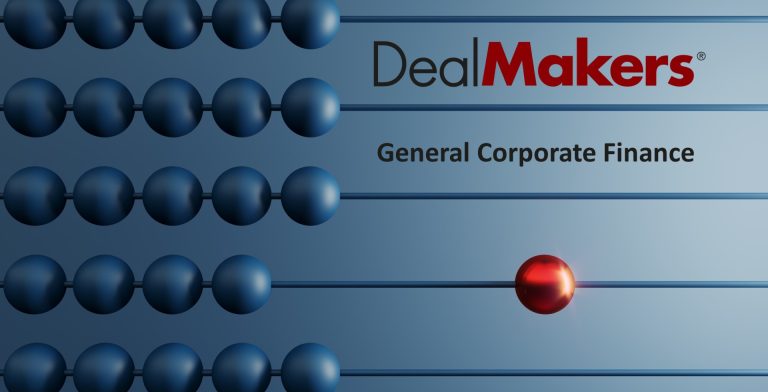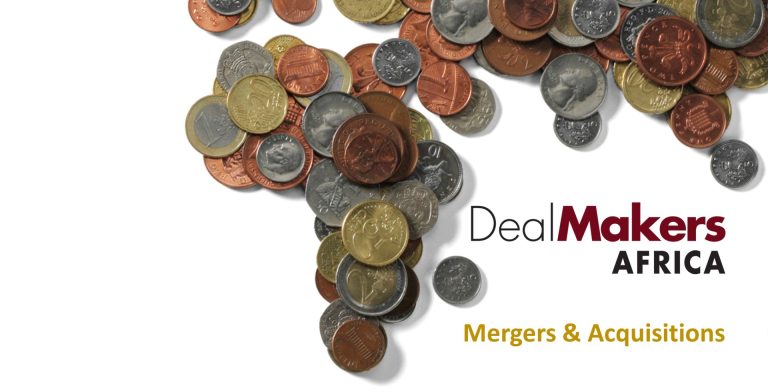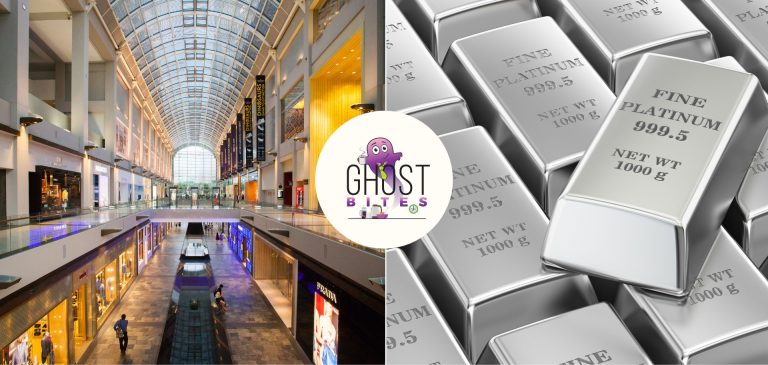The Investec Rand India Accelerator offers geared exposure to growth in the iShares MSCI India ETF over the 3.6-year term. The ETF tracks the large and midcap Indian market, covering 85% of the India equity universe.
Investec Rand India Accelerator is listed on the Johannesburg Stock Exchange and offers 1.5x geared exposure to the ETF capped at 40%, for a maximum return of 60% in Rands. In addition, the Accelerator provides a high degree of capital protection.
To explain the opportunities and risks of this product, Brian McMillan of Investec Structured Products joined me on this podcast.
Applications close on 15 November, so you must move quickly if you are interested in investing. As always, it is recommended that you discuss any such investment with your financial advisor.
You can find all the information you need on the Investec website at this link.
LISTEN TO THE PODCAST:
TRANSCRIPT:
The Finance Ghost: Welcome to this episode of the Ghost Stories podcast. It’s another one with the Investec team on one of their excellent structured products. We’ve done quite a few of these now in the past year or so, and it’s a really good opportunity. If you are interested in this stuff, or if you’ve never been exposed to it before, well done for clicking on the podcast and for coming to learn something new – you can find out all about their new products on offer.
And today we are doing one which made me want to travel, Brian, I’ll be honest. When I opened up the brochure, the beautiful “Inspiring India” – I’ve been doing a lot of traveling this year, and when that bug bites, you want to keep doing it! India may be on the list one day, we’ll see.
But of course, the beauty of investing is that even if you aren’t leaving your desk and getting your passport stamped, your money can do that for you, which is a very, very cool feature of the world of markets that we know and love. I thought it was just really interesting that you guys have latched onto this India theme. I’ve been writing about it a little bit recently. We did a Magic Markets podcast on it about a month ago. So, yeah, very excited to talk about India with you today and understand how this product works. So thank you for the time.
Brian McMillan: Yeah, thanks very much, Ghost. You know, that’s one of the beauties of structured products, I think, is that we get the opportunity a lot of the time to do structured products that cover the developed markets. And mainly there we’re saying to people, you’ve got a bit of uncertainty, markets are very high, go in with capital protection. But one of the other features is that we can open these up to new types of markets or thematic type of indices, and there has been quite a lot of hype – we’ve been looking to do something on India for probably over a year now, and we just needed the right timing and to find the right product that we could offer to the market.
It gives that exposure to the South African investor who has heard about this and might want to get involved, but the market has had a run. They don’t know the intricacies of the Indian market. If you go in and you have a level of capital protection, you can do some investing and have that peace of mind.
The Finance Ghost: It’s very much a “going where the ducks are quacking” kind of scenario, because that’s the need for downside protection – in all likelihood, you’re going into a market that has had a good run. And the beauty of the structured product is to say, okay, it can run further, but just in case, here’s some protection. Obviously we’ll get into all of those intricacies in the show as part of understanding the product.
I think before we even get there, let’s just take it up a level. We’re recording this podcast at a time when Chinese stimulus has now been all over the headlines pretty much the whole week, right? I mean, emerging markets are exciting things. They can be quite volatile. A lot of it relies on what China is doing. But the Indian economy is quite different to China. We’ve seen more of a services focus, I think, in India than some of the manufacturing focus. And so many people have talked about China for years and it almost felt like not enough people were talking about India, where this emerging market giant that it is has been growing and growing. There have been one or two South African companies that have gone and invested in India, but not a lot of them. It just didn’t seem to get the same amount of attention, certainly in South Africa, as China would, for example. And there are various reasons for that.
What is working so well in India specifically? We see all these challenges in China around demographics, etc. and now all the stimulus they need to do, yet India just seems to be ticking along very nicely?
Brian McMillan: It certainly has. And when we started looking into it, obviously it came on the radar screen when they became the number one in the world at GDP growth for the next ten years. That’s forecast to be the highest growth area. And it is a story of demographics, but it’s also a little bit deeper than that. It’s the largest democracy in the world, very different from the Chinese model. Certainly it’s going to be driven by a lot of different things.
It’s high tech for sure, but more on the actual people side. The education system is very good. They produce excellent graduates, certainly for the tech space. We’ve seen a lot of that in people moving to the United States but there is a huge market in India for that.
Then the next thing is when you have an economy growing at 8% per annum, the change that can happen over a ten year period is absolutely massive. You’re doubling your economy every nine years, which is a huge amount. And in fact in the two, three weeks ago you were talking about the China market, India actually overtook China at one point as the third largest economy in the world, briefly, and then fell back as the Chinese stimulus came through. So we think it’s going to grow from here and then the question becomes: how do we invest in that and how do we take part in that exciting growth?
The Finance Ghost: Yeah, absolutely, it’s an exciting growth story. And this is the sort of thing you need to do: keep abreast of these opportunities. I’m a big emerging markets enthusiast. You know, I love living in South Africa. I love being South African. Every time I travel overseas, I’m even happier to come home, to be honest. I really enjoy it here.
Of course India is part of that, they are the “I” in BRICS, we are the “s” and China is the “C”. These countries are all linked and they’re all in the Global South at the end of the day. It’s been very much about developed markets in the past couple of years with the Fed interest rate policy and everything else. They’ve driven just a huge amount of activity in developed markets. They’ve hurt some emerging market currencies in a big way. The extent of stimulus in the US over the past few years has really led to huge valuations on some of those assets. And now as we get to a point where maybe there’s some interest rate easing and that gives a bit of a chance to emerging market currencies, if China does go ahead with a stimulus plan etc. then is there starting to be a bit more interest in emerging markets in general? Markets that got a bit walloped during the pandemic versus developed markets?
Brian McMillan: Yes, certainly we’ve looked at the China market as well, very much from a different perspective, where the Chinese market has significantly underperformed over the post-Covid period where the India story is more a momentum story and growth going forward. We would also look at putting structured products over the Chinese market where there’s been significant underperformance. For investors, we have over the last 10 – 15 years driven very much a diversification policy through our structured products. I think a lot of our investors have exposure to developed markets, the S&P 500, the euro, stocks in Japan etc. We did one earlier this year. The take up was great for that. But I think, we’re not saying put all of your money into India, it’s a slam dunk. We’re saying, here is a way you can actually invest in this market with capital protection and get a little slice of that and gain some diversification as well.
The Finance Ghost: Yeah, absolutely. And let’s talk about liquidity, because that’s also a major consideration for emerging markets generally. The emerging markets are not too bad. Frontier markets become a real issue with this. But I don’t think there are too many structured products running around on frontier markets. Certainly on emerging markets, it’s something that you do have to think about. How does India stack up in terms of liquidity by global standards on their market?
Brian McMillan: So that was one of the surprises when we actually delved into this market, was how much liquidity there is. It’s currently ranked as the fourth largest market in terms of liquidity. So very deep. There’s been a lot of internal trading. So unlike China, I think India has much more of an equity-type culture, whereas China is very much a property- and cash-type of savings platform. India, in the last few years, their markets have become very deep. The top 20 companies there have massive pools of liquidity.
When we did some further investigation, we looked at the Nifty 50 as the index that we’d heard the most about. What we didn’t realise is that Nifty 50 is made up of shares of two different exchanges. There’s the Mumbai Stock Exchange and Indian Stock Exchange, so it was difficult to write options on them. And that’s why we’ve actually gone for an ETF in this case. We’re writing the product over an ETF, which is the MSCI India, the largest ETF that trades in the US. In fact, you would see that even the ETFs that are available in South Africa, there is an Indian ETF available in South Africa that uses the same index. So when we’re doing structured products, we are able to buy options over those ETFs and we’re comfortable that on a daily basis we could write as much or unwind as much in options as we needed to.
The Finance Ghost: Yeah, I was wondering about the choice of ETF. You’ve done a great job there of answering that, so thank you. And of course, an ETF is really just, as you say, an index tracker. There are a whole lot of underlying companies. There’s a great thematic trend to it. And here the theme is clearly India. But I think it does help to go one level down and just understand what some of the sectors are that are sitting in that market. Because even in the US, you go and you buy an ETF, but actually you go and look at the constituents and it’s a very heavy tech focus and you can see that there are just a few companies that make up the top piece, even somewhere like the US. In these ETFs, it’s always good to go down and understand what’s actually inside the box.
So in the Indian market, what are those major sector exposures? And do they have a scenario where there are one or two names that are very heavily weighted in that market, or is it quite a spread?
Brian McMillan: It is. It’s a nice spread. You know, that’s one of the issues that we found in particularly the S&P of late, that those magnificent seven are making up a larger and larger proportion of the S&P 500. And again, when we looked at India, the spread of counters, this particular MSCI India index covers about 85% of the large and medium stocks that trade in India. There are quite a few banking, financials, but that makes up about 13% of the index. The consumer discretionary, which is really the one that we’re looking to for the growth, where they’ve actually got companies in India that sell to the Indian market, makes up a large portion. And then there’s also quite a big spread on things like pharmaceuticals. They make a lot of generic pharmaceuticals. And there are quite a few names that people in South Africa would have heard of in there as well. From an IT point of view, Infosys, obviously, one or two of the big banks, Tata Consultancy Services, which is a large conglomerate that’s across diversified industrials. Cars, you’ve got things like Mahindra. So it’s a nice spread and probably more than a lot of the other markets, it’s quite focused on India itself. There’s a lot to do with the Indian consumer. It’s not necessarily something like the FTSE, which has got very little exposure to the UK market because it’s oil companies and stuff. This one specifically looks more at India from an Indian consumer point of view, which is something we quite like.
The Finance Ghost: Yeah, absolutely, because if you want the theme to be the Indian growth story, then you need to go and buy equities that can do that. So that is a very, very cool feature of that market, for sure.
I think let’s move on now from the macroeconomic “why is India interesting” piece, I think it is interesting, I think that’s clear. Let’s get into the details of what you guys have put together here with this new product, which is called the Investec Rand India Accelerator. Another nice, interesting name and we’ll definitely get to the accelerator part just now, and it talks to some of the structures we’ve seen from you before.
Before we get to that, though, let’s just talk about the structure of this thing. It is a flexible investment note. I’m going to hand over to you to just give us an idea of how the reset dates work, some of the liquidity in this thing. What does that flexible investment note really mean? What are people buying when they buy this product?
Brian McMillan: We’ve done structured products for a number of years off of what we call our balance sheet. In other words, we issue as Investec a note that’s listed on the JSE, and it would last for three and a half years or 3.7 years. That note at the end of the period would then expire. The investors would get their money paid back to them, and then we would request or we would say, would you like to invest in our new structured product?
And of course, during that time, you have leakage. People want to, some of them do want the money back, but most people we find in structured products specifically, if they’ve had a good outcome, would like to continue investing in structured products. So with the 20 year note, what we’ve done is we’ve just said we’re going to issue a note on the JSE, it’ll be 20 years long, but each time we do a structured product that is three and a half years, for example, that will be the first investment in this 20 year note. Come three and a half years’ time, we will come back to you and say, this is your return that you’re going to receive on this particular product. Would you like to continue, remain invested? And for the next three and a half years or five years, we will now be doing a structured product on, for example, China.
So we have the ability to change the underlying index, we have ability to change the term. But for an investor who’s looking specifically at India, it’s just the listed instruments on the JSE. You can sell it at any time. We make a market on a daily basis, and at the end of the term, if you want to receive your money back, we can pay that back to you at that time as well. So it’s just a part of the structure that will help us roll people within the actual structured products into the next one without having that issue of paying people back and then requesting the money back from them again.
The Finance Ghost: I was smiling when you said three and a half years, because this one’s got this weird intricacy right where it’s not quite three and a half years, it’s 3.6 years. So you got to get the calculator out for that one. And I was laughing because when we talked about it before the show, I thought, is that supposed to say 3 – 6 years? And then I thought, no, Investec doesn’t have typos, that can’t be right. So it’s 3.6 years, not 3.5 years, a bit of a funny story there around familiarity bias and how we read something were not used to seeing. It kind of jumps out as, oh, that might be wrong. What was the reason for 3.6 years on this one rather than 3.5?
Brian McMillan: Yeah, so a lot of our products are done one year, three year, three and a half year, five years. But sometimes we have issues around the expiry. So if we have an expiry that comes up in the middle of December, if it’s three and a half years, we sometimes extend that out for another month or another two months. This particular one will be, if you wanted to put it in months terms, it’s three years and seven months, which equates to 3.6 years. But the reason for that is we were matching it to where options actually expire in the market. It makes it more efficient from a pricing point of view as well as a credit point of view. So just slightly longer than three and a half years.
The Finance Ghost: And in terms of liquidity, I mean, life does happen. Unfortunately, it happens to all of us. It comes at you fast. Things can go wrong. Is there some wriggle room if you need to get the money out, for example, if something happens?
Brian McMillan: Absolutely. So, you know, during the life of the product, because it’s listed on the JSE, we actually have to make a market on a daily basis. And by making a market, what we mean is that we will actually buy back any of the investors’ notes that they want to sell on a daily basis. So if you go and look at any of our previous ones on a daily basis, we have a bid in the market. We bid for, you know, for R100,000’s worth. If somebody wanted to do more than that, normally their broker phones us up and says, you know, I want to sell R400,000, can you make me a price on that? And we will do that on a daily basis.
Sometimes we have a slight mismatch. We might say to them, we’ll give you a price at 4pm once the US market opens, or something like that. But on a daily basis, we will make a market for these and so somebody can sell them at any time during the life of the product. They’re not necessarily locked in to expiry.
I should note, though, that things like the capital protection, when we say you have capital protection, that means that during the life of the product, it may trade below your initial price, but as long as the market hasn’t fallen more than 30% on the last day, you will have your capital protection at that point.
The Finance Ghost: Yeah, fantastic. So let’s talk about the word accelerator, which is now in the name of the product. As I said, it’s the Investec Rand India Accelerator. So that’s a key part of what’s going on here. And that means there is some kind of enhanced return, as we’ve seen in some of the products that we’ve dealt with on these podcasts before. So, please walk us through what is the opportunity there? And of course, this is some of the great upside on this product and the way it’s structured.
Brian McMillan: Yeah, so the word accelerator we use sometimes when we’re referring to gearing or getting more than what the market returns. When we looked at this, we obviously have to price it. The options on the Indian market aren’t cheap. We had a look at it and we said, what do we think it can grow in the next 3.6 years? And then we said, okay, if the market grows 40%, and we can give you one and a half times that 40%, is that attractive? So, what it means is we’re giving you one and a half times more growth than what the index does. Unfortunately, we can’t give it indefinitely, so we have to cap it. We’ve capped it at 40%, but we’ve said we’ll give you one and a half times the growth. If the index is up 10%, you will get a 15% return.
And because it’s all rand, everything is related to rand. We take the index level on day one, we take the index level at the end, and we say, what percentage has that moved? And then we say, okay, if it’s moved 20%, you will get one and a half times that. You will get a 30% return, but in rand. So if you put in R100,000, you will get back R130,000 at the end of that term.
The Finance Ghost: So basically, there’s an enhanced return on the upside. On the downside, there’s capital protection as long as the ETF doesn’t go below 70% of where it started. So if it drops by between zero and 30%, you are protected. Yes, you’ve lost money versus inflation, but at least you get your capital back. On the way up, you get a nice enhanced return.
So the “catch” basically is that you are sitting with capped upside. There is a maximum return here. If the Indian market does go absolutely bonkers over this period, as the investor, you wouldn’t lock in that full benefit, right?
Brian McMillan: That’s exactly it. If we had to look at this against investing in a rand ETF, there is one in the market, what we’re doing is we’re saying we’re giving you some capital protection, but in order to get that capital protection, we’re taking away the potential for some of the upside. Now, the ETF would have to go up more than 60% over that period to outperform our product. Anything less than 60% up in the ETF, we would actually outperform in our product. Anything more than 60% up, then the ETF would have been the way to go. But of course, with an ETF, you have full downside exposure all the time. So that’s really what we’re trying to do, we’re trying to say, here’s a market that investors don’t necessarily know a whole lot about. They’ve heard about it, they want it, they’re excited about the growth potential in it. Let’s put a small amount of money in here but have the capital protection. And then, because it has run as hard as it has in the last two years – and it’s only really the last two years post-Covid that it’s run. In fact, when you look at it against the S&P or the Nikkei, actually over the last ten years, it hasn’t run as much as those markets. We’re saying, here’s some good exposure to the upside, get some exposure to that market and get some exposure to the growth potential.
The Finance Ghost: And I think what’s lovely here is most people just don’t have exposure to the Indian market. They really don’t. It’s a big gaping hole in their portfolios. If they own a lot of JSE-listed stocks, they have a lot of look-through to China, whether they like it or not, they really do. If they own a lot of US stocks, they have actually also got a lot of look-through to China if they’re on the consumer side. Then obviously they’ve got all the tech stuff as well. Yeah, Europe has been a bit of a slow one, let’s be honest. They’ve been hurt by some of the ground they’ve lost in industrial players against China etc. especially on the car side. But India is just this very, very interesting emerging market where South Africans for some reason are just not very exposed. Very few of our corporates give that exposure. They are one or two, but it’s limited.
This is a very cool way to actually go and say, hey, you know, if this thing keeps going, I’m going to get a nice enhanced return. If it goes completely mad, I’ve missed out a bit, but I’m still going to be smiling because I would have still gotten a great return, objectively. And if it goes down a bit, I’ve got some protection, you know, because it has had a strong run so if it does correct over the next few years and end up lower than it is now, you know, that’s a concern and that’s something that can be addressed by this product. So it does seem like a really great offering.
Obviously, the next question has got to be around fees. So for investors, what fees do they need to be aware of? You know, what’s involved here?
Brian McMillan: I think one of the nice things that we do with our structured products is there are fees in it, fees are paid to the financial advisor, but the fees are all worked into the product. So let’s say the market does run nicely and the index is up 40%, you will get the maximum return of 60%. If you put R100,000 in, you will receive back R160,000. There’s no fee that comes off of your return, as such.
We do pay the advisors a fee to, you know, to give advice to the clients, but that would actually be worked in. So, you know, for example, instead of one and a half times gearing, we might be able to give 1.53% if there was no fee paid in it. But for the product itself, all the fees are worked in and there’s no additional fees that the investor would have to pay.
The Finance Ghost: Okay, fantastic. Let’s talk practicalities, what is the minimum investment amount, what are the closing dates and how do people go about doing this? Do they contact you directly? Is it through a financial advisor? How do they actually get their money in here?
Brian McMillan: We’re closing on the 15th November. We then collate all the money that comes in from various different IFAs, stockbrokers, wealth managers. And then we do the trade on the 21st November. So there is a bit of time left. There’s still another good nearly six weeks.
People should contact their financial advisors. We as Investec Structured Products can’t give advice to people, you know, we don’t have their full details, we don’t know what their tax situation is, so all of our products have to be bought through a financial advisor or stockbroker.
A number of the stockbrokers have access to this. You would need to have a stockbroking account because it is a listed instrument on the JSE. And if you don’t have one of those, you know, most of the big banks have got their own stockbrokers. You could open one with them or your financial advisor would tell you, you know, which one they prefer. You fund that account, so you put the money in there and the financial advisor will then advise us how much they wish to invest on your behalf. You would then see another benefit of having it listed is previously these structured products were very opaque because you couldn’t see price discovery, you didn’t know what the value was – but because this is listed on the exchange, you’re going to receive a monthly statement from your stockbroker showing you what price you paid for it, what the value of it is at the moment, and you can keep track of it that way.
The Finance Ghost: Yeah, fantastic. Look, I think it’s a really, really cool opportunity, so thank you for that information. I will include in the show notes, more links on the product and obviously if people want to go through the Investec website and find out more about it as well. Brian, thank you so very much for your time on the show, as always. I know you’re traveling at the moment, so hopefully that all goes well for you and good luck with this product. No doubt it’ll be another great success.
Brian McMillan: Thank you very much.

